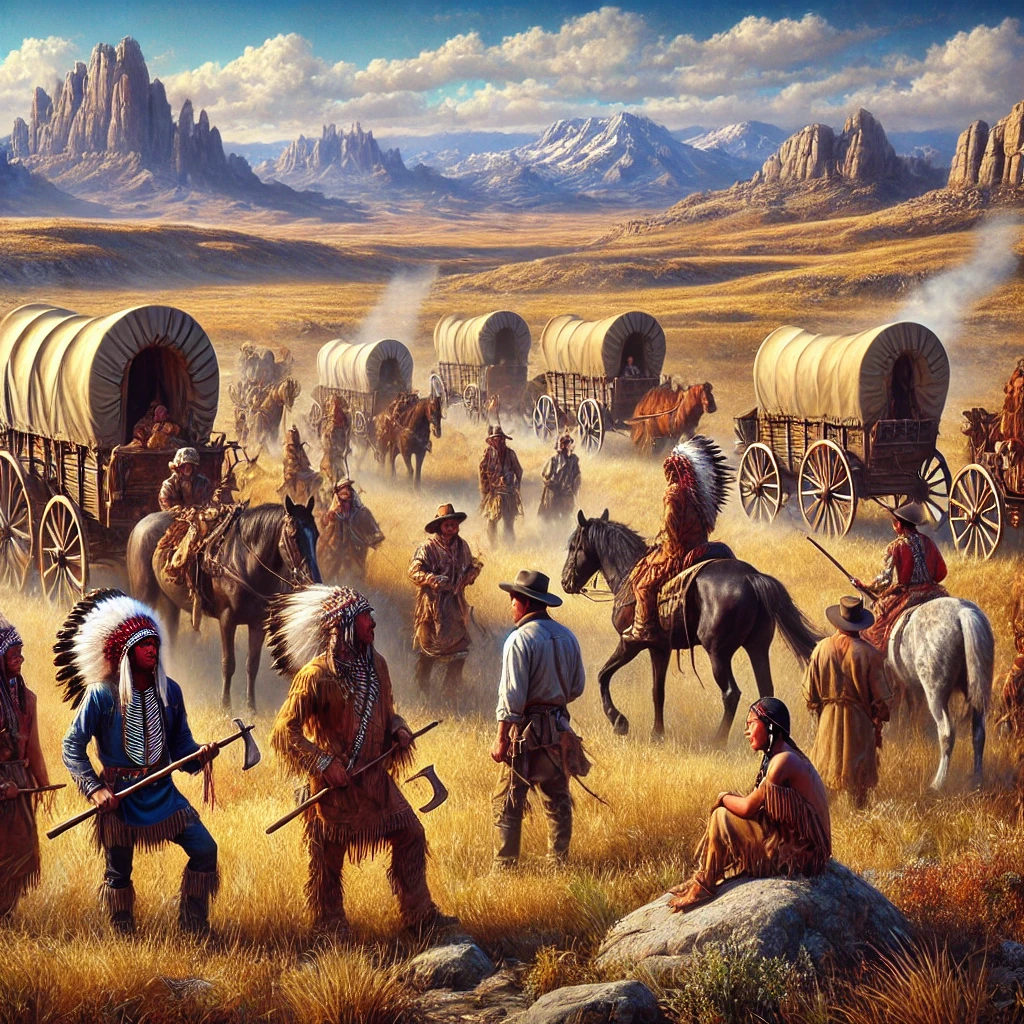The rugged landscapes of American Primeval (Netflix series – watch on link) transport viewers to the 19th-century frontier, where survival depended as much on grit and ingenuity as on communication. From Indigenous languages to frontier slang, the words spoken in this time tell fascinating stories of their own. Let’s explore the origins of some of these words and phrases and dive into a survival-themed word game that captures the spirit of the frontier.
Page Contents
Historical Word Origins
1. Pioneer
- Origin: Derived from the Old French word peonier, meaning foot soldier or laborer. The term evolved to describe individuals who ventured into uncharted territories, blazing trails for others to follow.
- Frontier Context: Pioneers were the backbone of westward expansion, embodying courage and resilience.
2. Prairie
- Origin: From the Latin prataria, meaning meadow, this term passed through Old French before entering English.
- Frontier Context: The vast grasslands of the American Midwest were known as prairies, often seen as both an opportunity and a challenge for settlers.
3. Buckaroo
- Origin: A phonetic adaptation of the Spanish word vaquero, meaning cowboy.
- Frontier Context: Cowboys, or buckaroos, played a crucial role in herding cattle and maintaining ranches in the wild frontier.
4. Rendezvous
- Origin: A French word meaning “to meet at a designated spot.”
- Frontier Context: Trappers and traders would gather at annual rendezvous to exchange goods and stories.
5. Moccasin
- Origin: From the Algonquian word makasin, meaning shoe.
- Frontier Context: These soft, durable shoes made of animal hide were commonly worn by Native Americans and adopted by settlers for their practicality.
6. Tomahawk
- Origin: From the Powhatan word tamahaac, meaning cutting tool.
- Frontier Context: Used as both a tool and a weapon, the tomahawk became a symbol of Native American culture and resilience.
7. Homestead
- Origin: A blend of Old English words ham (home) and stede (place).
- Frontier Context: Homesteads were granted to settlers under the Homestead Act, offering a new start to those willing to work the land.
By delving into these origins, we gain a deeper appreciation for the linguistic tapestry of the frontier. Each word carries with it a story of adaptation, survival, and cultural exchange.
Grab A Bonus: Survival Word List For Word Games
Channel your inner frontiersman by playing a survival-themed word game. Using the letters from a frontier-related word, see how many survival-related terms you can form. Try your hand at the examples below!
Example 1: WAGONTRAIN
- Words: wagon, grain, train, rain, grit, tow, war, win, tan, grow
Example 2: MOUNTAINMAN
- Words: mountain, man, mint, main, moan, tin, aim, noun, tan, mat
Challenge Your Friends! Pick a word like “survival” or “frontier” and compete to see who can create the longest list of related words. This game is a fun and educational way to immerse yourself in the world of American Primeval while sharpening your vocabulary skills.
Conclusion
American Primeval captures the harsh yet fascinating reality of the American frontier. By exploring the origins of its language and engaging in survival word games, we can connect with this historical era in a unique and entertaining way. So grab your word list and see how well you would fare on the frontier—because out here, every word counts!
Scrabble lover from early childhood. Best time to play word games – morning on Saturday.


